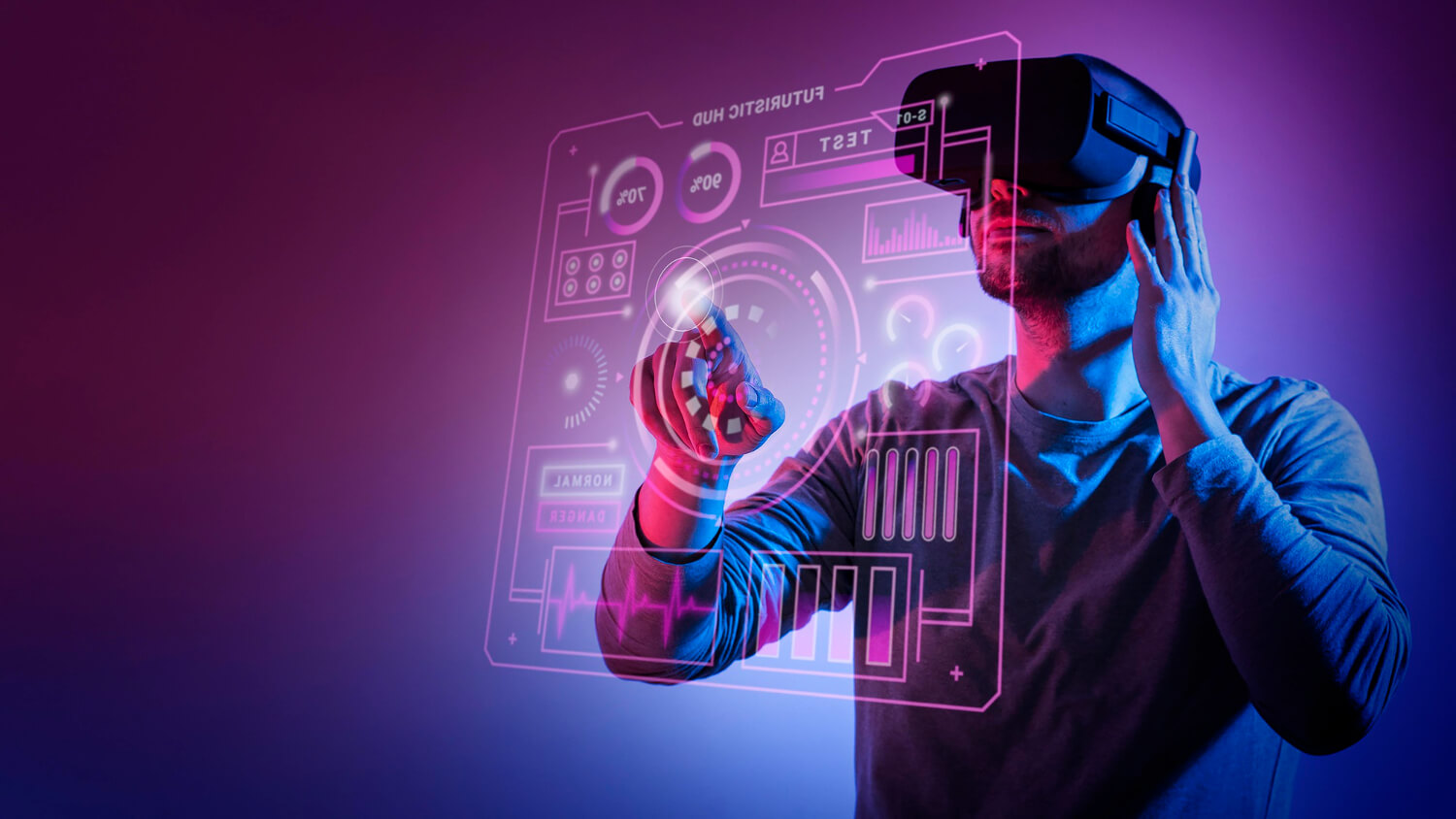Blitz News Digest
Stay updated with the latest trends and insights.
Reality Check: Why Virtual Reality is the Future of Fun
Discover why virtual reality is transforming entertainment and revolutionizing fun. Dive into the future of immersive experiences today!
Exploring the Evolution of Virtual Reality: How It's Transforming Entertainment
The evolution of virtual reality (VR) has dramatically transformed the landscape of entertainment over the past few decades. From its early beginnings in the 1960s as a novelty experience, VR technology has matured into a sophisticated medium that offers immersive interactions. Today, consumers can step into virtual worlds through a range of devices, including VR headsets and mobile applications. Major industries, including gaming, film, and live events, are harnessing the power of VR to provide experiences that engage users like never before. This shift not only enhances storytelling capabilities but also allows audiences to participate in narratives, creating a personal connection with the content they consume.
As VR technology continues to advance, its impact on entertainment is only expected to grow. Several key trends are emerging in this space:
- Increased Accessibility: With the rise of standalone VR headsets, such as the Oculus Quest, more people can access VR entertainment without the need for expensive setups.
- Interactive Experiences: Innovations in VR gaming emphasize user agency, enabling players to shape their adventures.
- Social Integration: VR platforms are evolving to include social features, allowing users to connect and experience entertainment together, regardless of physical distance.
These advancements underscore how VR is not just altering how we enjoy entertainment, but also reimagining the essence of interactive experiences.

The Benefits of Virtual Reality in Gaming: Why It's the Future of Fun
Virtual reality (VR) has revolutionized the gaming industry, offering immersive experiences that traditional gaming simply cannot match. By creating a fully interactive 3D environment, players feel as though they are truly part of the game, enhancing their engagement and enjoyment. One of the significant benefits of VR in gaming is the increased immersion it provides. Gamers can look around, interact with their surroundings, and even physically move to navigate through the game, resulting in a more dynamic and thrilling experience. This level of interaction creates a stronger emotional connection to the gameplay, making every session not just a game but a memorable adventure.
Moreover, VR technology fosters social connections among players. Multiplayer VR games allow friends or strangers from around the world to join together in a shared virtual space, breaking down geographical barriers and creating a sense of community. These social experiences are further enhanced through voice communication and realistic avatars, enabling players to communicate and form relationships in ways that traditional gaming often struggles to replicate. As this technology continues to advance, we can expect even more innovative gaming experiences that blur the line between reality and digital fun, solidifying virtual reality as the future of gaming entertainment.
Is Virtual Reality the Next Frontier of Social Interaction?
The emergence of Virtual Reality (VR) technology has sparked discussions about its potential to transform social interaction. As individuals increasingly seek immersive experiences, VR offers a platform that transcends traditional communication barriers. With applications ranging from virtual meetups to gaming environments, users can engage in shared experiences that mimic real-world interactions. This evolution could redefine how we perceive distance and presence, fostering a sense of community that was previously unattainable.
Furthermore, VR holds the promise of creating unique social spaces that cater to diverse interests and demographics. Whether through virtual concert experiences or collaborative work environments, the possibilities are vast. As more people embrace this medium, it is crucial to consider the implications for mental health and interpersonal relationships. The question remains: will Virtual Reality enhance our connections, or will it lead to a further disconnection from our physical surroundings? Exploring these dimensions will be key to understanding its role in the future of social interaction.